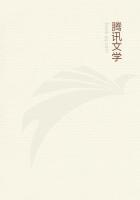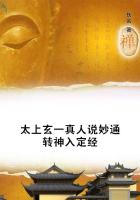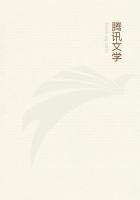It remains, then, that it is opposed either as negation or as privation. It cannot be the negation or privation of one of the two;for why of the great rather than of the small? It is, then, the privative negation of both. This is why 'whether' is said with reference to both, not to one of the two (e.g. 'whether it is greater or equal' or 'whether it is equal or less'); there are always three cases. But it is not a necessary privation; for not everything which is not greater or less is equal, but only the things which are of such a nature as to have these attributes.
The equal, then, is that which is neither great nor small but is naturally fitted to be either great or small; and it is opposed to both as a privative negation (and therefore is also intermediate). And that which is neither good nor bad is opposed to both, but has no name; for each of these has several meanings and the recipient subject is not one; but that which is neither white nor black has more claim to unity. Yet even this has not one name, though the colours of which this negation is privatively predicated are in a way limited;for they must be either grey or yellow or something else of the kind. Therefore it is an incorrect criticism that is passed by those who think that all such phrases are used in the same way, so that that which is neither a shoe nor a hand would be intermediate between a shoe and a hand, since that which is neither good nor bad is intermediate between the good and the bad-as if there must be an intermediate in all cases. But this does not necessarily follow. For the one phrase is a joint denial of opposites between which there is an intermediate and a certain natural interval; but between the other two there is no 'difference'; for the things, the denials of which are combined, belong to different classes, so that the substratum is not one.
6
We might raise similar questions about the one and the many. For if the many are absolutely opposed to the one, certain impossible results follow. One will then be few, whether few be treated here as singular or plural; for the many are opposed also to the few. Further, two will be many, since the double is multiple and 'double' derives its meaning from 'two'; therefore one will be few; for what is that in comparison with which two are many, except one, which must therefore be few? For there is nothing fewer. Further, if the much and the little are in plurality what the long and the short are in length, and whatever is much is also many, and the many are much (unless, indeed, there is a difference in the case of an easily-bounded continuum), the little (or few) will be a plurality. Therefore one is a plurality if it is few; and this it must be, if two are many. But perhaps, while the 'many' are in a sense said to be also 'much', it is with a difference; e.g. water is much but not many. But 'many' is applied to the things that are divisible; in the one sense it means a plurality which is excessive either absolutely or relatively (while 'few' is similarly a plurality which is deficient), and in another sense it means number, in which sense alone it is opposed to the one. For we say 'one or many', just as if one were to say 'one and ones' or 'white thing and white things', or to compare the things that have been measured with the measure. It is in this sense also that multiples are so called. For each number is said to be many because it consists of ones and because each number is measurable by one; and it is 'many' as that which is opposed to one, not to the few. In this sense, then, even two is many-not, however, in the sense of a plurality which is excessive either relatively or absolutely; it is the first plurality. But without qualification two is few; for it is first plurality which is deficient (for this reason Anaxagoras was not right in leaving the subject with the statement that 'all things were together, boundless both in plurality and in smallness'-where for 'and in smallness' he should have said 'and in fewness'; for they could not have been boundless in fewness), since it is not one, as some say, but two, that make a few.
The one is opposed then to the many in numbers as measure to thing measurable; and these are opposed as are the relatives which are not from their very nature relatives. We have distinguished elsewhere the two senses in which relatives are so called:-(1) as contraries;(2) as knowledge to thing known, a term being called relative because another is relative to it. There is nothing to prevent one from being fewer than something, e.g. than two; for if one is fewer, it is not therefore few. Plurality is as it were the class to which number belongs; for number is plurality measurable by one, and one and number are in a sense opposed, not as contrary, but as we have said some relative terms are opposed; for inasmuch as one is measure and the other measurable, they are opposed. This is why not everything that is one is a number; i.e. if the thing is indivisible it is not a number. But though knowledge is similarly spoken of as relative to the knowable, the relation does not work out similarly; for while knowledge might be thought to be the measure, and the knowable the thing measured, the fact that all knowledge is knowable, but not all that is knowable is knowledge, because in a sense knowledge is measured by the knowable.-Plurality is contrary neither to the few (the many being contrary to this as excessive plurality to plurality exceeded), nor to the one in every sense; but in the one sense these are contrary, as has been said, because the former is divisible and the latter indivisible, while in another sense they are relative as knowledge is to knowable, if plurality is number and the one is a measure.
7















